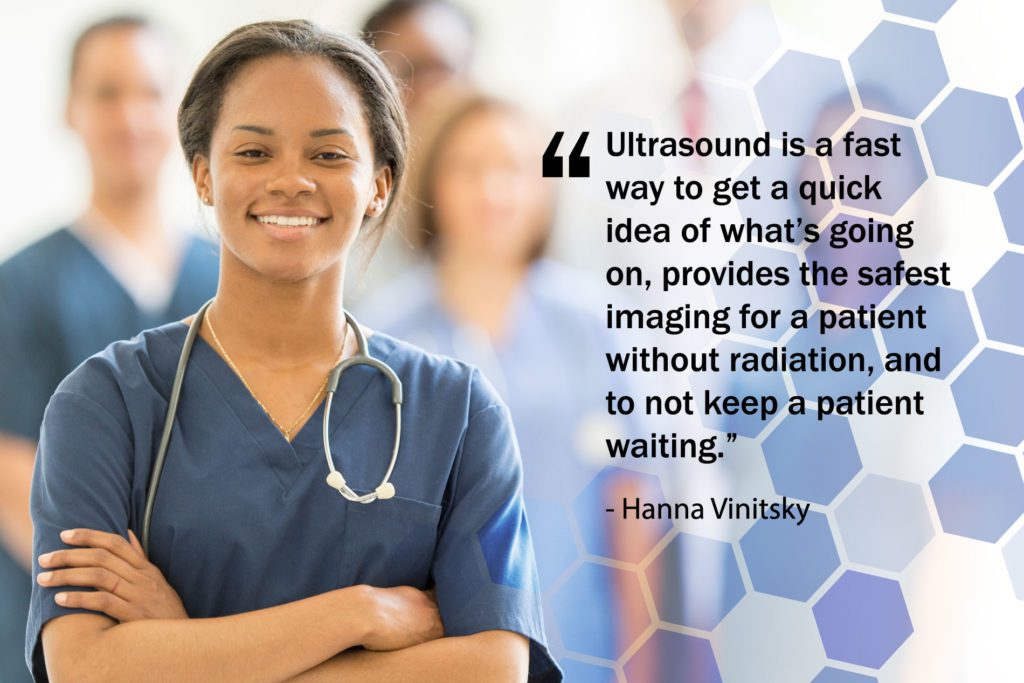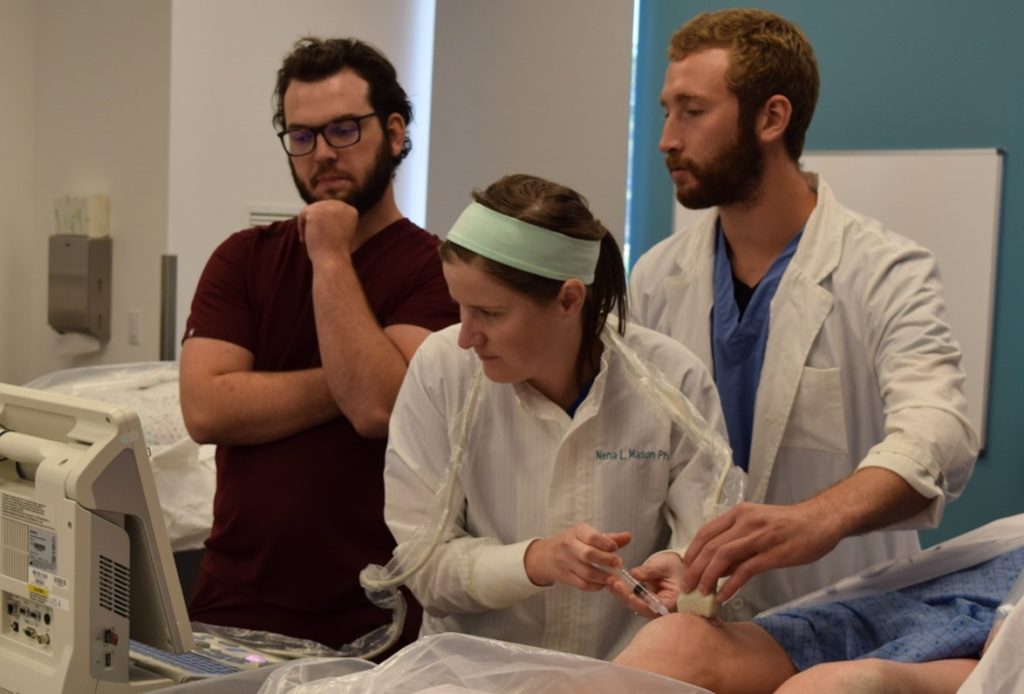Point-of-care ultrasound (POCUS) influences the medical field of the present, and paves the way for how it will look in the future. Due to its clear growth within the medicine in recent years, doctors have started to predict that it will ultimately become as common as the stethoscope.

The increase in specialties utilizing POCUS to provide healthcare providers with immediate information to guide their diagnoses has amplified the need for POCUS training before entering the workforce. Consequently, the expansion, usability, and advantages of POCUS have not been lost on the key demographic that will be impacted by, and follow, its evolution for years to come — medical students.
Growing a POCUS Foundation During Educational Years
While at university, many students turn to two primary resources to become educated in this small but powerful tool to expand their knowledge of and experience with POCUS: classes within the traditional curriculum, if they’re offered, and student-driven POCUS groups.
In the article Integration of Point-of-Care Ultrasound Training into Undergraduate Medical Curricula–-A Perspective from Medical Students, Loma Linda University School of Medicine (LLUSM) students share their perspectives on having POCUS integrated into their medical training. Through experiences provided by traditional curriculum, as well as their Ultrasound Interest Group’s (USIG) workshops, students of all experience levels develop the confidence to implement what they have learned in patient care.
For students who wish to further develop a foundation in POCUS outside of the classroom, the opportunities afforded by their campus’s POCUS Student Groups are monumental in preparing them for what they will see and handle in their post-graduation careers.
How POCUS Student Groups Prepare Medical Students
University POCUS Student Groups offer educational and practical opportunities outside of the classroom setting that students can utilize to apply their coursework knowledge of pathologies and diagnoses to and expand their ultrasound abilities.

Dr. Nena Mason, Director of Gross Anatomy at Rocky Vista University, started and is the faculty advisor for their student group, the Rocky Vista Ultrasound Society. Prior to the Coronavirus pandemic, Dr. Mason shared that throughout the year, they would put on “various educational activities while integrating as much clinical information as possible for the student body on campus.”
Across different universities, students can develop a basis of knowledge surrounding POCUS by attending lectures and lessons put on by their campus groups. Furthermore, student groups also host events, workshops, and training sessions that provide medical students with hands-on opportunities they otherwise might not receive.
Brent DeManby, one of the Rush Ultrasound Interest Group (RUSIG) co-founders and a third-year master’s degree student in Physician Assistant Studies at Rush University, strongly believes in the benefits students receive from this hands-on experience.
“I think everyone can benefit from learning more about it and from actually practicing it,” said DeManby. “We can talk all day about these different things, but until you actually get your hands on a probe and actually scan and start seeing and manipulating what you’re looking at, there’s really only so much exposure you can get.”
DeManby’s familiarity with POCUS dates back to before entering graduate school when he worked as a cardiac ultrasound technologist for around six years and trained other health professionals in ultrasound. RUSIG garnered a lot of interest from students throughout programs, as well as practicing residents and physician assistants who reached out to Demanby about participating in the group’s activities.
POCUS Resources for Student Groups
Hanna Vinitsky, a third-year medical student at Midwestern University, shared her gratitude for the POCUS Certification Academy’sTM willingness to correspond with her and help make their certifications affordable to her school’s group.
“I’m really grateful to POCUS Certification Academy for helping us out with a group discount and giving so many students an opportunity to get the certification where otherwise they would not be able to afford it,” said Vinitsky.
The POCUS Certification Academy offers health professionals paths to various certifications, and they provide resources and opportunities for students and residents.
Why POCUS
POCUS is snowballing, and students recognize what it brings to the table and want to have a foundation in it to enhance the level of care they’re able to provide.
“Ultrasound is a fast way to get a quick idea of what’s going on, provides the safest imaging for a patient without radiation, and to not keep a patient waiting,” said Vinitsky.
“I’m a very big proponent of point-of-care ultrasound,” said DeManby. “At the end of the day, I think having those skills and having that tool available, and knowing how to use it, only makes all of us better providers.”
Ready to get started on your POCUS journey? Check out our many certificates and certifications here.
Looking for additional inspiration? Sign up for our POCUS Post™ newsletter to receive monthly tips and ideas.





















